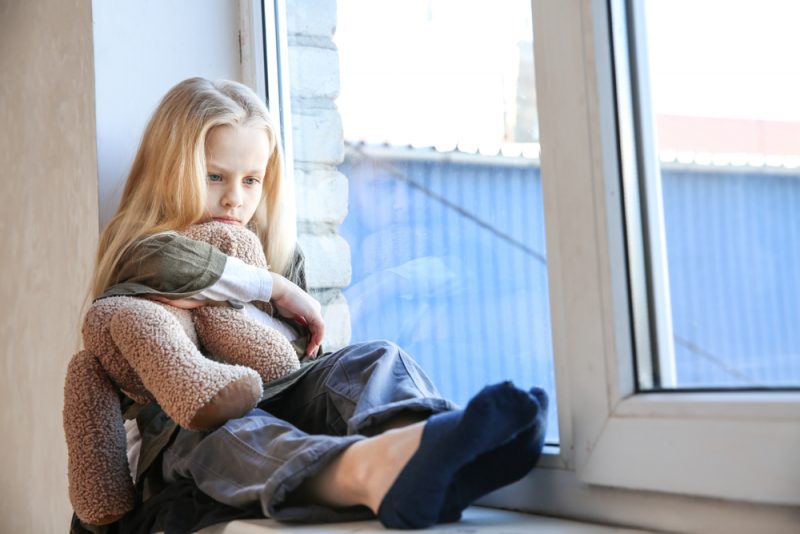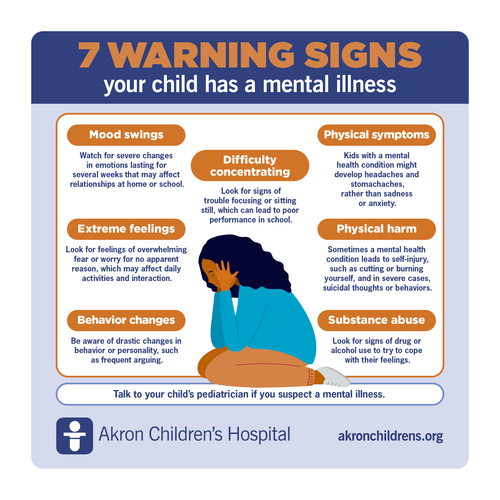 Being a child isn’t all fun and games. Children are constantly faced with new challenges and social pressures, not to mention their growing bodies are changing rapidly.
Being a child isn’t all fun and games. Children are constantly faced with new challenges and social pressures, not to mention their growing bodies are changing rapidly.
Once they hit adolescence, the hormonal changes associated with puberty may also cause feelings of sadness or frustration, making kids moody or irritable.
For some kids, this moodiness or sadness is more than just a phase or a bad attitude that will go away. In fact, it could be an early warning sign of a mental illness.
According to the National Alliance on Mental Illness, 16.5% of youth, or 7.7 million kids, in this country aged 6 to 17 experienced a mental health disorder in 2016.
But even if you know the red flags of a mental illness, it can be difficult to distinguish them from typical childhood behavior. Also, kids often lack the vocabulary or developmental ability to explain their emotions and concerns.
Children can develop all the same mental health conditions as adults, including anxiety disorders, depression, ADHD (attention-deficit/hyperactivity disorder), but sometimes they express them differently.
Here are 7 warning signs your child may be suffering from a mental illness, and it’s not just a phase that will eventually go away.
- Mood swings. Watch out for feelings of sadness or withdrawal that last for several weeks, or severe mood swings that affect relationships at home or school.
- Extreme feelings. Look for feelings of overwhelming fear or worry for no apparent reason, which may affect daily activities and interaction.
- Behavior changes. Be aware of drastic changes in behavior or personality, as well as out-of-control behavior, such as frequent fighting or arguing.
- Difficulty concentrating. Look for signs of trouble focusing or sitting still, which can lead to poor performance in school.
- Physical symptoms. Compared with adults, children with a mental health condition might develop headaches and stomachaches rather than sadness or anxiety.
- Physical harm. Sometimes a mental health condition leads to self-injury or self-harm, such as cutting or burning yourself. Children with a mental health condition also might develop suicidal thoughts or attempt suicide.
- Substance abuse. Look for signs of drug or alcohol use to try to cope with their feelings.

If you have any concerns about your child’s behavior or suspect a mental illness, talk to your child’s pediatrician and ask for a referral to a mental health specialist. Also, be sure to share your concerns with your child’s school and find support by connecting with other families. Learn more about our Lois and John Orr Family Behavioral Health Center.










